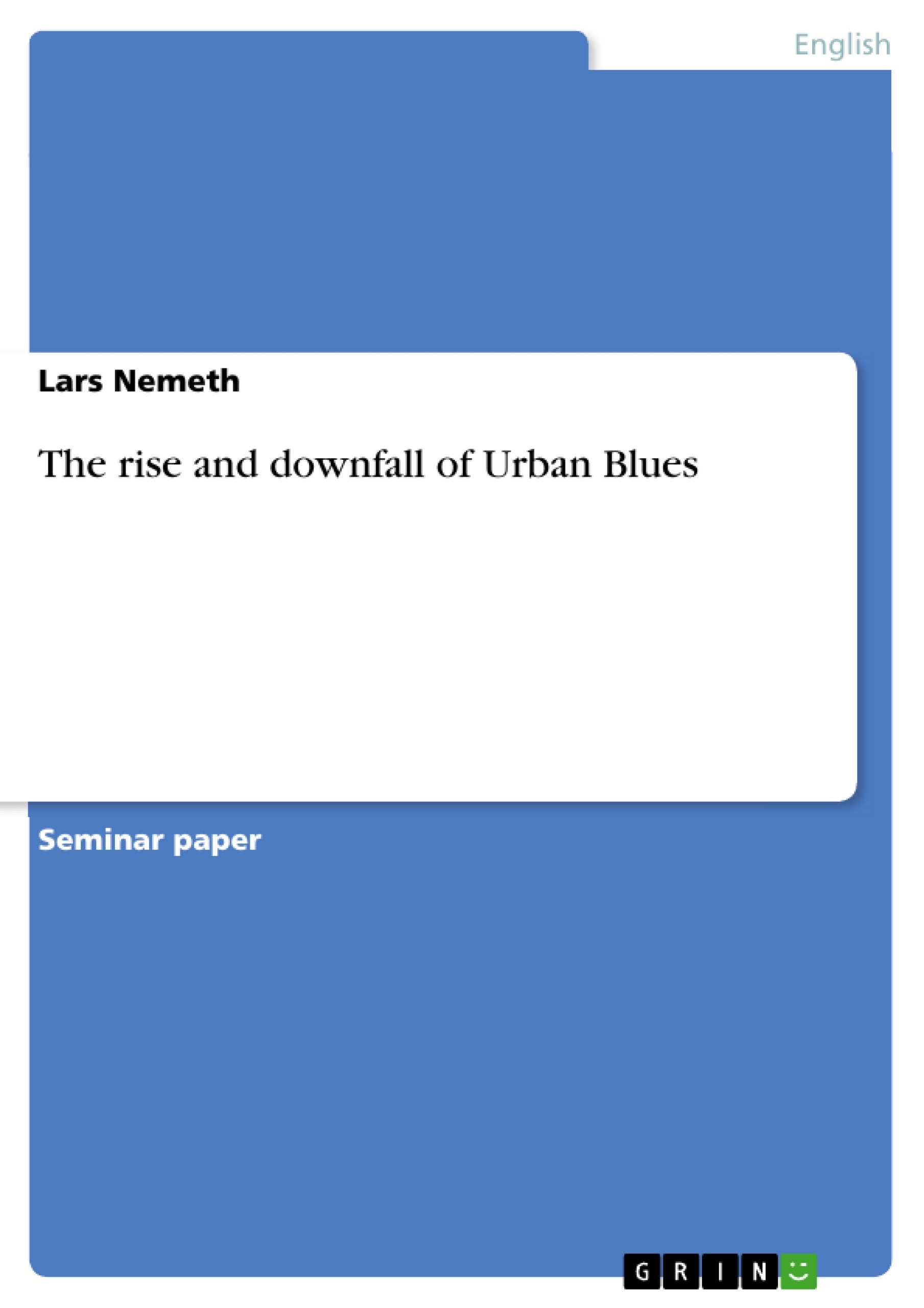The Urban Blues is a form of blues music that developed in the big cities in the U.S.. The one city that dominated this development is Chicago. That is why, often the Chicago Blues is meant when talking about Urban Blues.
There is probably no other blues style with such a high quality of recognition considering form, feeling and sound like the Chicago Blues. It is based on the rough and direct Delta Blues which came in contact with urban life. Besides, Urban Blues is the first blues style that reached a mass audience. Not just in the bigger cities of the U.S. but also worldwide.
One of the most popular musicians of those days is a man called Muddy Waters. He helped to transform a style and technique which guided bluesmusic into a new dimension. He adopted the rural delta blues sound and combined with the feeling of the new living conditions of the Afro Americans. But the urban blues became more popular, left the black quarters and ghettos and was absorbed by the mainstream very soon. Urban blues, released from the subcultural status, a white mass audience and economy started to control the buisness. In the mid fifties the blues hybrid Rock`n Roll took over public attention and Blues and Rock `n Roll were delivered from the Afro American identity. At the end of this development there was a huge lack of authenticity for ‘black’ audience although it once was the Afro-American culture through which they expressed themselves. Consequently most parts of the afro american audience disappeared and started searching for a new musical home.
I will try to work out the development from the Urban Blues as an Afro-American identification and its rise until the downfall and alienation for the ‘black’ audience. I will proof this development by the example of the live and career of Muddy Waters and his record company Chess. His roots in the Mississippi Delta Blues, his reputation as one of the heads in Urban Chicago Blues and how he lost his native base and audience. Why did the Afro-Americans turn away from the blues? Why did they leave their cultural roots and where did they arrive, where did the Afro-American culture find their new home?
First of all I will concentrate on the demographic, social and cultural changes the Afro American population caused to move in the big cities and how their life and living conditions changed. There were three social changes taking place in the first half of the twentieth century that led to urban blues.
Table of Contents
- Introduction
- Which were the conditions that made this development take place in Chicago?
- Migration
- A new cultural context
- The advanced technology
- Chess
- McKinley Morganfield aka Muddy Waters
- The electric guitar
- Lyrics
- Godfathers and sons
- "It's like beeing black twice"
- Conclusion
Objectives and Key Themes
This work explores the development of Urban Blues as a form of Afro-American identity in Chicago, focusing on its rise and subsequent alienation from the 'black' audience. The study utilizes the life and career of Muddy Waters and his record company Chess as a primary example.
- The impact of the Great Migration on the development of Urban Blues
- The influence of Muddy Waters on the evolution of blues music
- The role of the record company Chess in shaping the Urban Blues scene
- The reasons behind the alienation of the Afro-American audience from Urban Blues
- The search for a new musical home for Afro-American culture
Chapter Summaries
- Introduction: This chapter introduces the concept of Urban Blues and its prominence in Chicago, highlighting the distinctiveness and popularity of the Chicago Blues. It also introduces Muddy Waters as a key figure in the evolution of the genre.
- Which were the conditions that made this development take place in Chicago?: This section explores the social and cultural changes that led to the development of Urban Blues, primarily focusing on the Great Migration of Afro-Americans from the South to Chicago in the first half of the 20th century. It discusses the impact of this migration on the city's population and the rise of a new cultural context.
- Chess: This chapter examines the influence of the record company Chess on the Urban Blues scene, emphasizing its role in shaping the sound and popularity of the genre.
- McKinley Morganfield aka Muddy Waters: This chapter delves into the life and career of Muddy Waters, a pivotal figure in the transformation of blues music. It explores his use of the electric guitar, lyrical themes, and influence on other blues musicians.
Keywords
The key terms and concepts explored in this work include Urban Blues, Chicago Blues, Delta Blues, the Great Migration, Afro-American identity, Muddy Waters, Chess Records, the electric guitar, and the alienation of the Afro-American audience from blues music. The text also explores the broader themes of cultural change, migration, and the impact of urban life on music.
- Quote paper
- Lars Nemeth (Author), 2005, The rise and downfall of Urban Blues, Munich, GRIN Verlag, https://www.grin.com/document/50400




